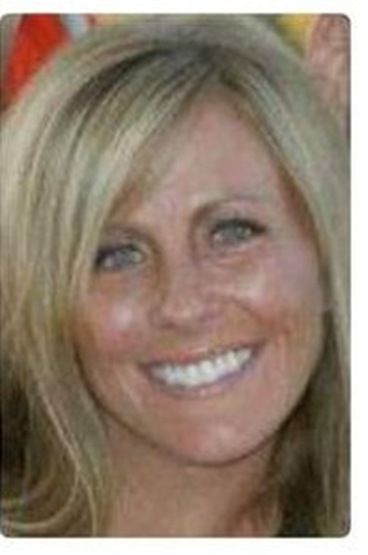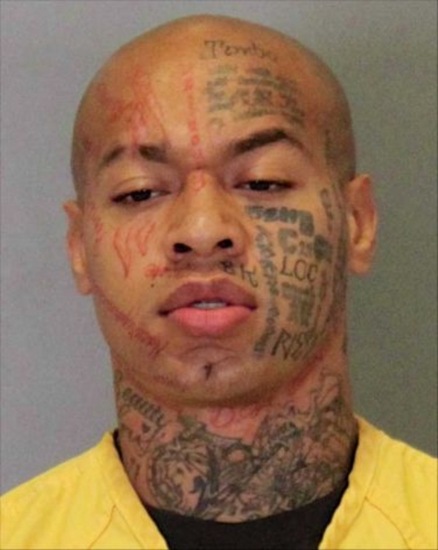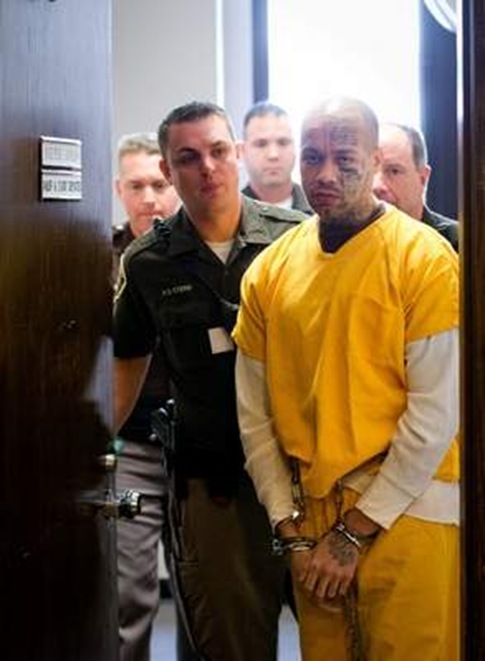Omaha
January 12, 2014

In the two years before his release into the general population of Omaha, Nikko Jenkins wasn’t even released into the general population of his prison.
The main reason: He was too dangerous to mix with other inmates.
Yet prison administrators launched him from their most extreme confinement — a segregated cell where he spent 23 hours a day — into the Omaha community.
They did so despite warnings from Jenkins’ family, friends, judges, psychiatrists, prosecutors, Parole Board staff, even Jenkins himself.
In an email two months before Jenkins’ release, Trudy Clark, an administrative assistant to the Nebraska Parole Board, wrote the director of the state corrections’ mental health unit.
“This email is written from a personal level only,” Clark wrote. “Why isn’t Nikko Jenkins in the mental health unit? The board is getting letters from him that he is going to eat people, specifically Christians and Catholics. This is only one of many bizarre letters the board has gotten from him. Is he being evaluated for a mental health commitment? As a taxpayer, this guy scares me to death!”
That was just one of many revelations contained in a 61-page state report released Tuesday.

With Jenkins’ consent, the state’s ombudsman, Marshall Lux, drilled into Jenkins’ prison file to reveal a never-before-seen picture of Jenkins’ volatile behavior — and prison officials’ response to it, or lack thereof.
Lux said his office, which is called on to investigate the public’s complaints about state agencies, issued the report because of the grave consequences of Jenkins’ release.
Within three weeks of his July 30 release, authorities allege, Jenkins killed Jorge Cajiga-Ruiz and Juan Uribe-Pena in Spring Lake Park; Curtis Bradford near 18th and Clark Streets; and Andrea Kruger near 168th and Fort Streets.
In response to the Lux report, Randy Kohl, deputy director of health services for the Corrections Department, said the agency disagreed with the “factual allegations” but could not comment further because of pending litigation involving Jenkins. The family of Andrea Kruger has filed a $7.5 million tort claim against the state.
Lux gave no opinion on one question that has dogged corrections directors, state officials and victims’ families in the wake of Jenkins’ release and subsequent arrest: Was Jenkins — who made comments about being commanded by an Egyptian god — suffering from a mental illness?
The ombudsman’s conclusion: Doesn’t matter.

Jenkins was clearly dangerous and clearly willing to undergo treatment under his belief that he was schizophrenic.
At a minimum, Lux said, the Corrections Department could have attempted to have Jenkins civilly committed.
Instead of a psychiatric ward, the department referred Jenkins to a social worker at its Lincoln prison in the last three months of his decade-long sentence. Lux gave credit to that social worker and numerous other state officials who sounded alarms and sought solutions for Jenkins before his release.
But ultimately, he said, Corrections failed.
“It is not our role in this matter to adjudicate issues of ‘fault’ in this case,” Lux wrote. “We do not have the power to negotiate the labyrinth of ‘what if’s.’ All that we do know is that the many crimes that Mr. Jenkins is now being accused of are bone-chilling and … this is not a situation where we can look at the (Corrections) Department’s mental health system and say that the department did everything that they might have done.”
Gov. Dave Heineman said Wednesday that he had not yet read the report but will and does plan to comment on it. “Not yet. I will,” he said.
State Sen. Brad Ashford of Omaha, who has been studying prison reforms, said he was alarmed by the ombudsman’s finding that only about 13 percent of Nebraska prisoners are receiving rehabilitation programming such as violence reduction, anger management and substance abuse treatment. If substance abuse programs are discounted, the percentage is only about 3.5 percent.
